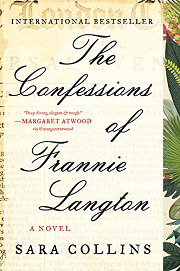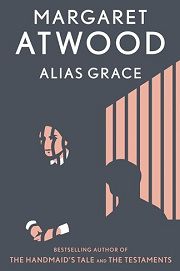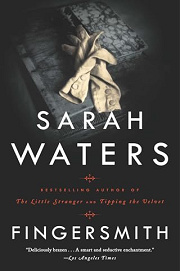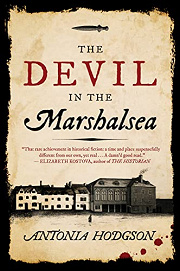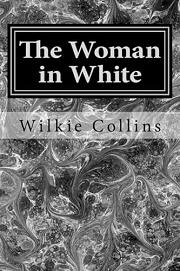Share your thoughts in a quick Shelf Talk!
The Confessions of Frannie Langton by Sara Collins
A former slave stands accused of a shocking crime in Georgian London, and her own past may be the most elusive witness of all. Secrets, seduction, and social ambition entwine in a gothic-tinged mystery that questions who gets to tell the truth. The Confessions of Frannie Langton is a haunting, sensuous page-turner.
Have you read this book? Share what you liked (or didn’t), and we’ll use your answers to recommend your next favorite read!
Love The Confessions of Frannie Langton but not sure what to read next?
These picks are popular with readers who enjoyed this book. Complete a quick Shelf Talk to get recommendations made just for you! Warning: possible spoilers for The Confessions of Frannie Langton below.
In The Confessions of Frannie Langton, did you enjoy ...
... an accused maid's foggy memories and a confession that may not tell the whole truth?
Alias Grace by Margaret Atwood
If you were gripped by Frannie's laudanum-laced memory gaps and her courtroom "confession" from Newgate, you'll love the way Alias Grace lets Grace Marks circle the murders she's accused of with tantalizing omissions and contradictions. Like Frannie writing her account to her lawyer, Grace narrates her past to a doctor, and every detail—from the servant's-eye view of a wealthy household to the final, unsettling revelation—keeps you wondering how much of the truth is being spoken.
... a perilous, sapphic Victorian romance entangled with class and deceit?
Fingersmith by Sarah Waters
Frannie's dangerous love for Marguerite Benham—stolen glances turning into a consuming affair under George Benham's roof—finds a thrilling echo in Fingersmith. Sue Trinder and Maud Lilly are pulled into a con that twists into passion, betrayal, and shifting identities. If the secrecy of Frannie and Marguerite's relationship and the way desire collides with power drew you in, Waters delivers those same tensions with gasp-inducing turns.
... the grimy, perilous underside of London and the cruelty of its prisons?
The Devil in the Marshalsea by Antonia Hodgson
If the soot, gin, and menace of 1820s London—and Frannie's time locked up while awaiting the Old Bailey—stayed with you, The Devil in the Marshalsea plunges you into an even darker gaol. Tom Hawkins must survive the infamous Marshalsea prison, where bribery buys air and murder waits in the shadows. The same visceral, bodily danger that surrounds Frannie pulses here, with vividly drawn alleys, cells, and desperate bargains.
... testimonies, letters, and written statements that piece together a mystery?
The Woman in White by Wilkie Collins
Frannie's written "confession"—moving between Jamaica, John Langton's experiments, and the Benham house—mirrors how The Woman in White assembles a mystery through diaries, statements, and letters. If you enjoyed sifting truth from competing accounts and official records around the Benhams’ deaths, Collins' chorus of narrators builds a case file on the page, inviting you to weigh credibility and catch the lies.
... a colonially haunted woman's intimate, turbulent inner voice?
Wide Sargasso Sea by Jean Rhys
Frannie's past on the Paradise plantation—forced into John Langton's "experiments," then shipped to London—infuses her voice with trauma, yearning, and fury. Wide Sargasso Sea offers a similarly searing interiority: Antoinette Cosway, a Creole woman from the Caribbean, narrates her unraveling under colonial violence and coercive marriage. If you prized the fierce, confessional psychology of Frannie's voice, Rhys gives you that same raw candor and history's sting.
Unlock your personalized book recommendations! Just take a quick Shelf Talk for The Confessions of Frannie Langton by Sara Collins. It’s only a few questions and takes less than a minute.
